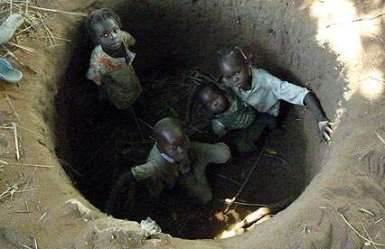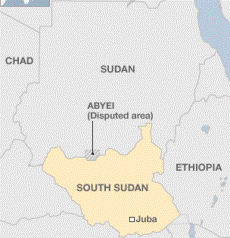S. Kordofan attacks may constitute war crime: Amnesty
June 25, 2014 (KHARTOUM) – Increased attacks on civilian areas in Sudan’s South Kordofan by government forces, may constitute a war crime, Amnesty International said in a new briefing on Tuesday.

In its 16-page report, Civilians Under Attack in Southern Kordofan, Amnesty says that satellite images secured since the launch of the offensive point to a sustained campaign of aerial bombardments and the targeting of homes, markets, hospitals and schools.
AERIAL ATTACKS
The aerial bombardments have coincided with the recent escalation in fighting between SAF and the rebel Sudan People’s Liberation Movement-North (SPLM-N).
Human rights monitors documented over 200 bombs dropped over Tangal, in Um Dorein county between 15 and 22 May, while 33 bombs were reportedly dropped on the rebel-controlled town of Kauda on 26 and 28 May, damaging homes and other buildings, including the office of a local NGO.
Amnesty says the Sudanese military’s use of unguided munitions in aerial attacks, dropped from aircraft at high altitudes, has resulted in extensive and widespread damage.
Analysis of satellite images of Kauda taken between 20 and 31 May shows craters and burn scars measuring up to 20 metres in diameter. In the most populous southern area of Kauda, 17 such craters were created over the 11-day observation period.
“The evidence captured in these images taken over a sustained period in May corresponds to numerous reports of attacks on civilian areas that are not only a clear violation of international humanitarian law, but may also constitute a war crime,” said Michelle Kagari, Amnesty’s deputy regional director for Eastern Africa.
South Kordofan has been the scene of a violent armed struggle between SAF and rebel forces since June 2011, with tensions spilling over into neighbouring Blue Nile state in September of the same year.
DEVASTATING IMPACT

Ongoing conflict has severely disrupted education and agricultural activities, while the Sudanese government’s ongoing refusal to allow humanitarian assistance to opposition-held areas continues to compound the already precarious situation faced by civilians.
“Since the start of the conflict, civilian populations in South Kordofan have been living in desperate conditions, fleeing from the bombs and seeking refuge inside foxholes and caves, with limited access to food and water, and no access to medical care,” the Amnesty report said.
The Sudanese government’s “Decisive Summer” military operation was launched to quell rebellion in South Kordofan, Blue Nile and Darfur and includes the deployment of the feared Rapid Support Forces (RSF) to support SAF.
PLANTING SEASON TARGETED
The intensified attacks coincide with the key planting season in South Kordofan between May to August.
Amnesty says the bombings are severely hindering people’s ability to cultivate their fields and are contributing to acute food shortages across the region.
Amnesty International says it has documented a pattern of attacks during the key months of the planting and harvesting season, suggestive of “a deliberate use of starvation as a method of warfare, which constitutes a war crime”.
“Amnesty International believes that the Sudanese authorities are aware of the planting season; therefore the intensification of bombings reported in the last two months may indicate that SAF are intentionally attempting to disrupt planting season,” the report said.
According to figures cited from OCHA, 13,400 civilians from rebel areas of South Kordofan arrived in government-controlled areas in May, while the SPLM-N reported that 90,000 people had been displaced within South Kordofan due to the recent upsurge of violence during the month of May. The figures are in addition to the reported 800,000 people displaced or otherwise affected by the conflict in rebel-held areas since the start of the conflict.
SUFFERING ON “MASSIVE SCALE”
With negotiations to end the conflict between the government and the SPLM-N currently at an impasse, Amnesty says it remains “deeply concerned” by the relentless and indiscriminate nature of military attacks against civilian targets, which it says has led to human suffering “on a massive scale”.
“All available information indicates that there were no military targets at or near the sites of these attacks,” the report said. “Even had these attacks been aimed at military targets, the repeated use of indiscriminate weapons in civilian areas over the last three years, without differentiation or precautions to prevent civilian casualties, has meant that civilians were unlawfully killed or injured, and civilian objects needlessly destroyed or damaged,” it adds.
Amnesty International is calling on the Sudanese to immediately cease indiscriminate ground attacks and aerial bombardments in civilian areas and to grant access to humanitarian organisations.
It has also urged the international community to ensure Sudan upholds its obligations under humanitarian law, particularly those requiring parties to any conflict to “distinguish between civilians and combatants” at all times.
(ST)
